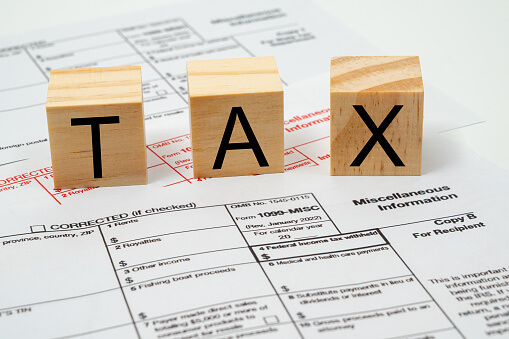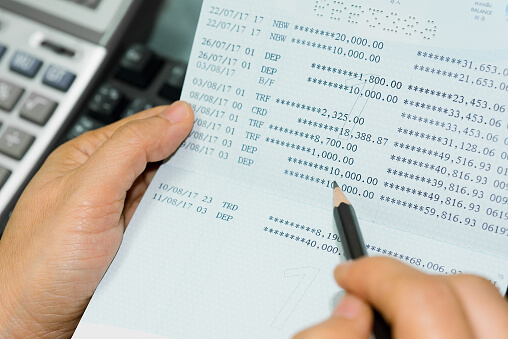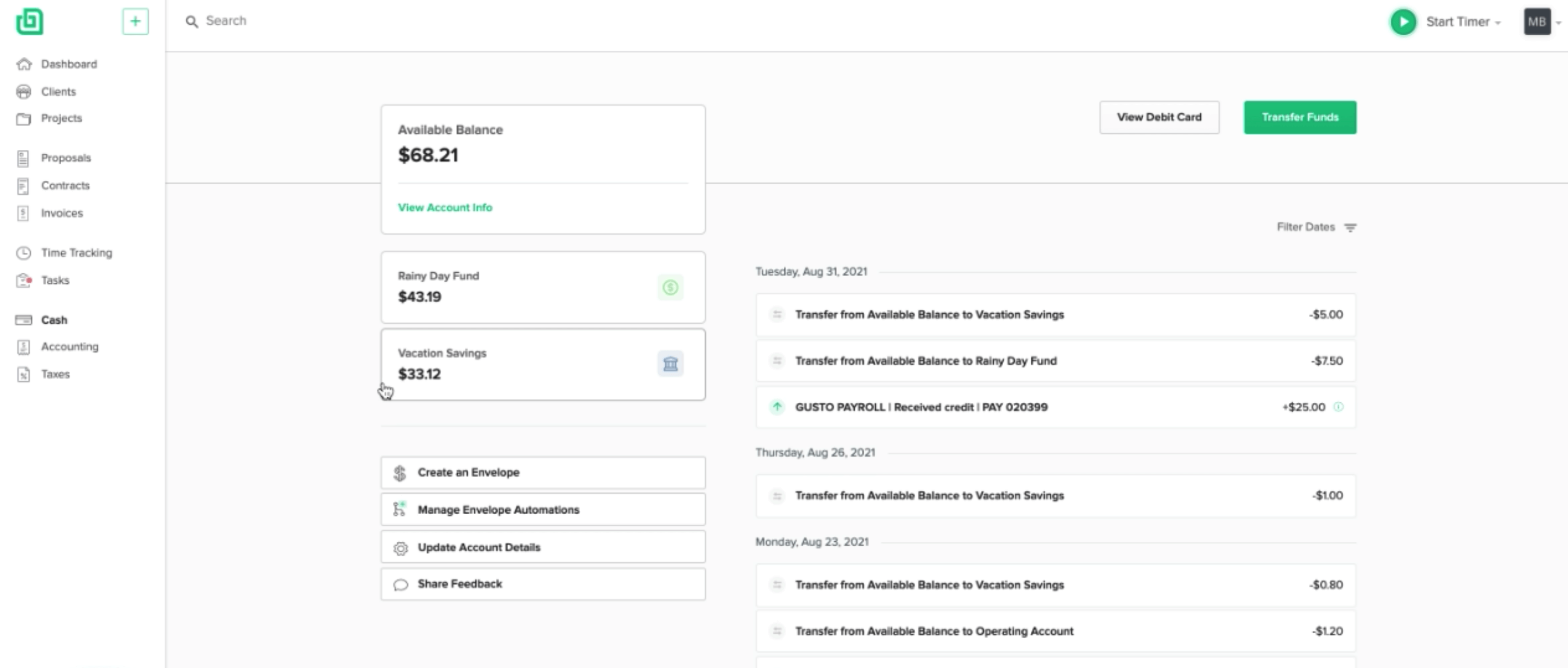Um Ihr Einkommen als Selbstständiger im Jahr 2026 nachzuweisen, verwenden Sie vom IRS zugelassene Methoden wie die Vorlage von jährlichen Steuererklärungen, Kontoauszügen und Gewinn- und Verlustrechnungen. Diese Dokumente belegen Ihre Fähigkeit, finanziellen Verpflichtungen nachzukommen, beispielsweise die Berechtigung zum Erhalt von Darlehen. Sorgen Sie für eine genaue Buchführung, indem Sie Online-Buchhaltungsdienste nutzen, um Zahlungen und Ausgaben zu verfolgen. Aktualisieren Sie Ihre Finanzunterlagen regelmäßig, um Ihr aktuelles Einkommensniveau widerzuspiegeln, insbesondere wenn Ihr Einkommen unregelmäßig oder uneinheitlich ist. Durch die Führung umfassender und aktueller Finanzunterlagen können Sie Kreditgebern und anderen Finanzinstituten Ihre Einkommenszuverlässigkeit effektiv nachweisen.
Wenn Menschen über Selbstständigkeit nachdenken, stellen sie sich oft nur die positiven Aspekte vor. Arbeiten Sie nach Ihrem eigenen Zeitplan, arbeiten Sie an Dingen, die Sie begeistern, nutzen Sie unbegrenzte Möglichkeiten zur Steigerung Ihres Einkommens und arbeiten Sie von überall aus.
Aber es ist nicht alles eitel Sonnenschein. Selbstständigkeit bedeutet auch, dass Sie Ihre Steuern selbst einreichen, Ihre Bücher selbst führen und ein Team von Mitarbeitern zusammenstellen müssen, die Sie möglicherweise entlassen müssen, wenn sie keine Leistung bringen.
Und als ob das noch nicht genug wäre, müssen Sie sich auch noch besonders ins Zeug legen, um zu beweisen, dass Ihr Unternehmen eine legitime und zuverlässige Einnahmequelle ist.
Es gibt zahlreiche Fälle, in denen eine Person ihr Einkommen nachweisen muss, und leider ist dies für Selbstständige schwieriger als für festangestellte Arbeitnehmer.
Wenn Sie einen festen Arbeitsplatz haben, reichen Ihre Gehaltsabrechnungen als Einkommensnachweis aus, da Sie jeden Monat ein festes Gehalt beziehen, wodurch Ihr Einkommen vorhersehbar ist.
Andererseits können die Einkünfte aus selbständiger Tätigkeit von Monat zu Monat schwanken, wodurch sie weniger vorhersehbar sind.
Deshalb benötigen Sie ganz andere Unterlagen, um Ihr Einkommen nachzuweisen.
In diesem Beitrag betrachten wir fünf Arten von Dokumenten, die als Nachweis für Einkünfte aus selbständiger Tätigkeit verwendet werden können.
Zuvor jedoch einige Beispiele, in denen Sie möglicherweise Ihr Einkommen nachweisen müssen.
Hinweis: Wenn Sie die Finanzen Ihres Unternehmens organisieren möchten, um Ihre Einnahmen oder Ihr Einkommen aus selbständiger Tätigkeit zu überprüfen, probieren Sie das Geschäftskonto von Bonsai aus. Es ist ein unkompliziertes, gebührenfreies und ohne Mindestumsatz garantiertes Geschäftskonto. Behalten Sie den Überblick über Ihre Steuern und verfolgen Sie Ihre Einkünfte noch heute besser. Eröffnen Sie hier ein Konto.
Gründe, warum Sie möglicherweise Ihr Einkommen aus selbständiger Tätigkeit nachweisen müssen
- Beantragung von Kleinkrediten und staatlichen Zuschüssen – Kredite und Zuschüsse sind eine hervorragende Möglichkeit, Kapital für Ihr Unternehmen zu beschaffen. Um sie jedoch zu erhalten, müssen Sie Ihr Einkommen nachweisen.
- Staatliche Leistungen – Die Regierung bietet verschiedene Sonderprogramme wie subventionierte Krankenversicherungen und bezahlbaren Wohnraum an, diese hängen jedoch davon ab, wie viel Sie verdienen.
- Kauf eines Eigenheims – Selbstständige, die eine Hypothek beantragen möchten, müssen sehr genaue Unterlagen zum Nachweis ihres Einkommens vorlegen. Dies ist notwendig, um ihre Fähigkeit zur Rückzahlung der Hypothek zu beurteilen.
- Eine Wohnung mieten – Einige Vermieter müssen sicher sein, dass Sie Ihre Miete bezahlen können, und verlangen daher Unterlagen, aus denen Ihr Einkommen hervorgeht.
Wie man als Selbstständiger sein Einkommen nachweist
Es gibt mehrere Möglichkeiten, wie Sie Ihr Einkommen als Selbstständiger nachweisen können, aber wir werden uns die 5 einfachsten und zuverlässigsten Methoden ansehen. Ich sage „einfach“, weil es sich um Dokumente handelt, die Sie bereits haben oder in wenigen einfachen Schritten erstellen können.

Einkommensteuererklärungen
Wenn Ihr Unternehmen bereits seit einiger Zeit besteht und Sie alle gesetzlichen Anforderungen erfüllt haben, sollten Sie über jährliche Steuererklärungen verfügen.
Die Steuererklärung für ein bestimmtes Jahr enthält eine Aufstellung aller Ihrer Einkünfte und Ausgaben für dieses Jahr und gilt als anerkannter Einkommensnachweis. Und die Tatsache, dass es sich um ein vom Internal Revenue Service (IRS) anerkanntes Rechtsdokument handelt, macht es noch glaubwürdiger.
Die Verwendung von Einkommensteuererklärungen hat jedoch auch einige Nachteile.
Der erste Grund ist, dass Ihre Einkommensteuererklärung möglicherweise nicht alle Einkünfte berücksichtigt, die nicht in den Büchern erfasst sind. Außerdem sind Unternehmen nicht verpflichtet, ihre Einkünfte für Steuerzwecke anzugeben, wenn diese unter einem bestimmten Betrag liegen. Daher geben diese Dokumente möglicherweise kein vollständiges Bild Ihrer Einkommenssituation wieder.
Vergessen Sie nicht, dass Sie nur einmal im Jahr eine Steuererklärung einreichen, was bedeutet, dass sich Änderungen Ihres Einkommens seit der letzten Einreichung nicht in Ihren Steuererklärungsformularen widerspiegeln.
Wenn Sie Ihr Unternehmen seit weniger als einem Jahr betreiben, haben Sie wahrscheinlich noch keine Steuererklärung vorzuweisen.

Gewinn- und Verlustrechnung
Führen Sie eine Gewinn- und Verlustrechnung für Ihr Unternehmen? Ich habe noch kein erfolgreiches Unternehmen gesehen, das dies nicht tut. Es ist entscheidend für die Messung der finanziellen Leistung eines Unternehmens und auch für die Planung der Expansion.
Wie sich herausstellt, sind Gewinn- und Verlustrechnungen ein akzeptabler Nachweis für Einkünfte aus selbständiger Tätigkeit. Der Grund dafür ist, dass es wichtige Finanzinformationen enthält, darunter Ihre Geschäftseinnahmen, Ausgaben und geschäftsbezogenen Einzahlungen.
Damit die Gewinn- und Verlustrechnung gültig ist, sollten die Transaktionsdaten korrekt sein und mit den Transaktionen Ihrer Bank oder Ihres Online-Bankings übereinstimmen.
Online-Zahlungsmethoden
Wenn Sie für Ihr Unternehmen eine Online-Zahlungsmethode verwenden, kann diese auch als legitimer Nachweis Ihres Einkommens dienen. Sie müssen lediglich die integrierten Tools oder sogar ein Tool eines Drittanbieters verwenden, um einen Bericht über alle über die Plattform empfangenen oder gesendeten Zahlungen zu erstellen.
Der einzige Nachteil ist, dass Zahlungen, die nicht online getätigt wurden, einschließlich Bar- und Scheckeinzahlungen, nicht abgedeckt sind. Daher müssen Sie es durch einen weiteren Einkommensnachweis ergänzen.

Formulare W-2 und 1099
Wenn Sie als Freiberufler für eine Agentur oder ein Unternehmen arbeiten, haben Sie wahrscheinlich die Formulare W-2 und 1099.
Ein W-2-Formular enthält Informationen über Ihr Einkommen, das Sie von einem Arbeitgeber bezogen haben, einschließlich der Höhe der einbehaltenen Steuern und anderer Leistungen, die Ihnen das Unternehmen oder die Behörde gewährt hat. Die Lohn- und Steuerbescheinigung (1099) enthält hingegen Informationen über Zahlungen, die Ihnen von einer anderen Person als Ihrem Arbeitgeber geleistet wurden, sofern diese Zahlungen 600 US-Dollar übersteigen.
Beide Formulare sind als Einkommensnachweise zulässig.
Genau wie Steuererklärungen werden diese Formulare jährlich eingereicht, was mit gewissen Einschränkungen verbunden ist.

Kontoauszüge
Das Beste haben wir uns für den Schluss aufgehoben. Ein Kontoauszug ist unsere empfohlene Methode zum Nachweis von Einkünften aus selbständiger Tätigkeit, da das gesamte Geld, das Sie mit Ihrem Unternehmen verdienen, mit ziemlicher Sicherheit über die Bank läuft.
Damit dies jedoch effektiv funktioniert, benötigen Sie ein spezielles Geschäftskonto, das Sie ausschließlich für geschäftliche Transaktionen verwenden.
Wenn Sie kein separates Konto für Ihr Unternehmen haben, wird es schwierig, da Sie zusätzlich die Aufgabe haben, private Transaktionen von geschäftlichen Transaktionen zu trennen. Außerdem wird es für Sie schwieriger, die finanzielle Leistungsfähigkeit Ihres Unternehmens einzuschätzen. Ganz zu schweigen von dem zusätzlichen Aufwand, den dies während der Steuerperiode mit sich bringt.
Wussten Sie, dass Sie keine Betriebsausgaben geltend machen können, wenn Sie kein Geschäftskonto haben?
Bonsai-Geschäftskonto – So helfen wir Ihnen, Ihr Einkommen aus selbständiger Tätigkeit nachzuweisen
Das Geschäftskonto von Bonsai ist ein Online-Geschäftskonto, über das Sie alle Ihre Zahlungen empfangen und Ihre Geschäftsausgaben begleichen können. Im Gegensatz zu herkömmlichen Banken funktioniert das Geschäftskonto von Bonsai vollständig online, sodass Sie Ihre Einkommensberichte jederzeit und ohne großen Aufwand erstellen können.
Es lässt sich außerdem sehr schnell und mit minimalen Anforderungen einrichten. Sie müssen keine Schätzung Ihres Geschäftseinkommens vorlegen, und Ihr persönliches Girokonto hat keinen Einfluss auf Ihr Geschäftskonto.

Ja, einige Banken müssen zunächst Ihr persönliches Girokonto prüfen, bevor sie Ihr Geschäftskonto genehmigen.
Weitere Vorteile sind die automatische Erfassung von Ausgaben und automatische Steuerabzüge.
Das Geschäftskonto von Bonsai ist kostenlos nutzbar. Es ist kein Mindestguthaben erforderlich und es fallen keine Transaktionskosten an.






